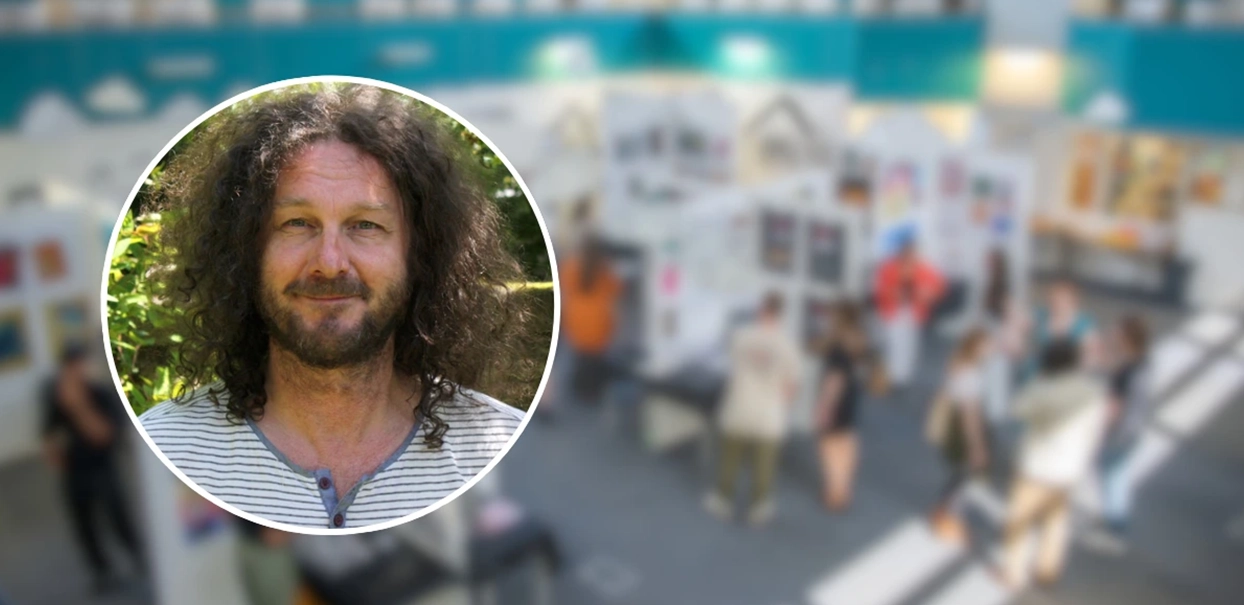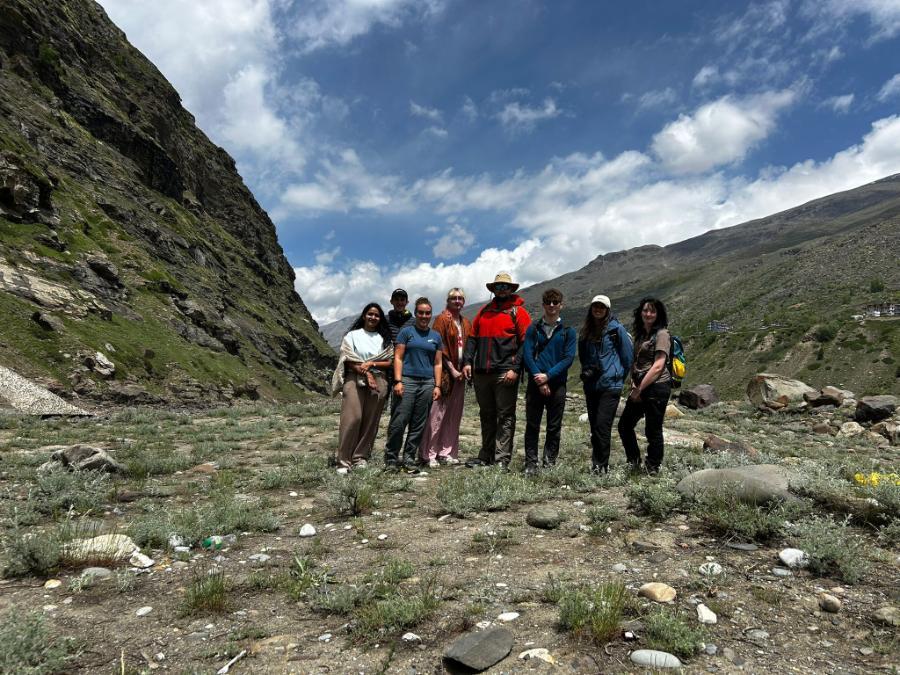
Paul Ferguson, Senior Lecturer in Literature and Culture and Programme Lead for MA Creative Practice at the University of Cumbria, is exploring how the arts can respond to the environmental and cultural challenges of our time. His current research focuses on the shock of the Anthropocene and how it manifests in both global and regional literature, with the Lake District offering a compelling lens through which to examine the intersection of these themes.
Here, Paul shares insights into his research, his motivations, and how our MA Creative Practice programme supports students in developing their own creative responses to the world around them.
What key themes feature as part of your research?
I’m currently following a couple of research avenues. My primary interest lies in considering the shock of the Anthropocene and attempting to trace the effects of this shock, conscious and unconscious, in our culture. I’m particularly interested in how anthropocentric worldviews are both reinforced and challenged in contemporary global literature, but also in considering where some of these same global currents can be discovered in regional writing.
In this instance, the Lake District sits at the intersection of anthropogenic climate change (Storm Desmond) and the processes that help to bring it about (hypermobility) and offers a perfect case study to examine how the extreme forces brought about by late-stage capitalism affect contemporary culture.
You’re also working on a collaborative project – what can you tell us about this?
The second avenue looks at the concept of time in relation to the Anthropocene and is intended to combine musical composition dealing with cyclical and linear time and spoken word passages drawn from participants’ research. This work is being undertaken in collaboration with colleagues from Leeds and Lancaster universities.
We are currently working on performance pieces that attempt to express the immensity of deep time alongside contemporary research that considers how much of tomorrow we stand to lose thanks to our desperate need to save time today. We are hoping to expand upon this project in the near future.
What motivated you to research this area?
I’ve been deeply concerned about the state of the planet for most of my adult life. Understanding where we are going wrong, and why, is a prerequisite for putting things right. Words and music are two of the most powerful tools for communication at humans’ disposal, so I’m very interested in how they have been used in the past as well as in how they might be used in the present to help us prepare for a better future.
How does your research feed into the MA Creative Practice course?
Our MA Creative Practice course emphasises interdisciplinary exploration and the relationship between creative expression and contemporary global issues. By combining literary analysis, environmental thought, and collaborative artistic practice, my research demonstrates how creative work can respond to and critique urgent planetary concerns. My focus on integrating words, music, and performance also reflects how we encourage our MA students to experiment across media to develop innovative forms of storytelling and cultural engagement.
Can you tell us more about the MA Creative Practice programme?
The MA Creative Practice is designed for artists, writers, performers and creatives who want to explore how their work can respond to contemporary issues and ideas. The programme is structured across a full calendar year, beginning in late September and culminating the following August, and we welcome applications from recent graduates as well as those looking to return to study or shift career direction.
Students work under the guidance of experienced tutors and can approach the practical modules either thematically as part of one overarching project, or as a series of mini briefs. This flexibility allows for a highly personalised and exploratory creative journey.
Our students engage with a wide range of creative disciplines and are supported in developing a portfolio that reflects their personal interests and professional goals. The course leads towards the completion of a major MA Project and a professional presentation in the final Masters exhibition.
Marisa, a recent Creative Practice graduate, reflected on her time at Cumbria: “The MA course has been an exceptionally validating experience for me – both personally and professionally. It has allowed me to develop my work in the ways I had hoped for, and beyond. Crucially, the course allowed me to expand and challenge my practice in a supportive and nurturing environment, and I graduated feeling excited for the future with the portfolio I had built during my time at the university.”
How can readers learn more about the MA Creative Practice?
An open day is a great opportunity to learn more about our MA Creative Practice and discover our Carlisle Brampton Road campus. Book your place at one of our upcoming open days today – our teaching team can't wait to meet you and help you explore how our programme can support your creative journey.

.jpg)


.jpg)